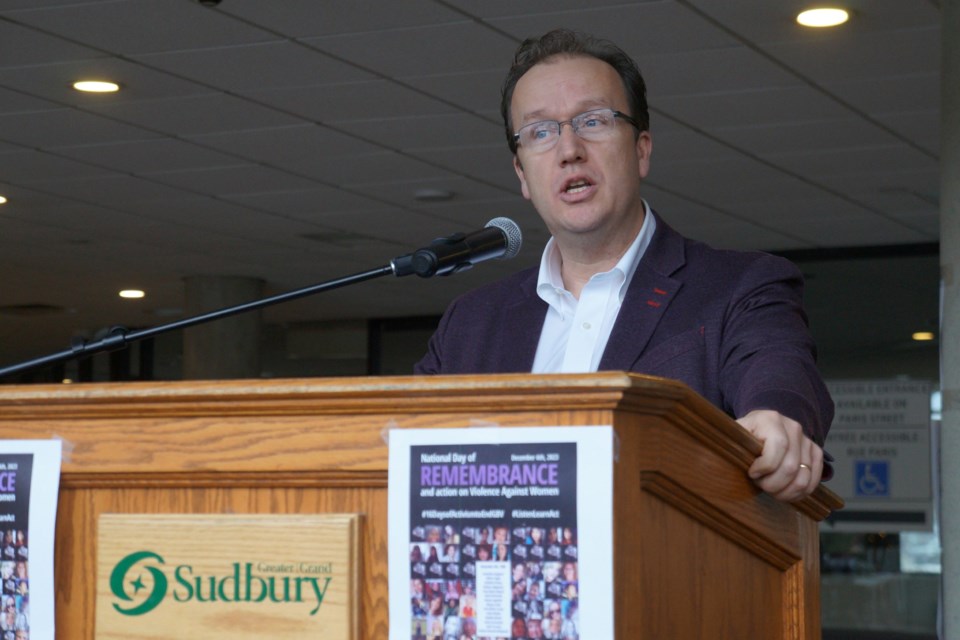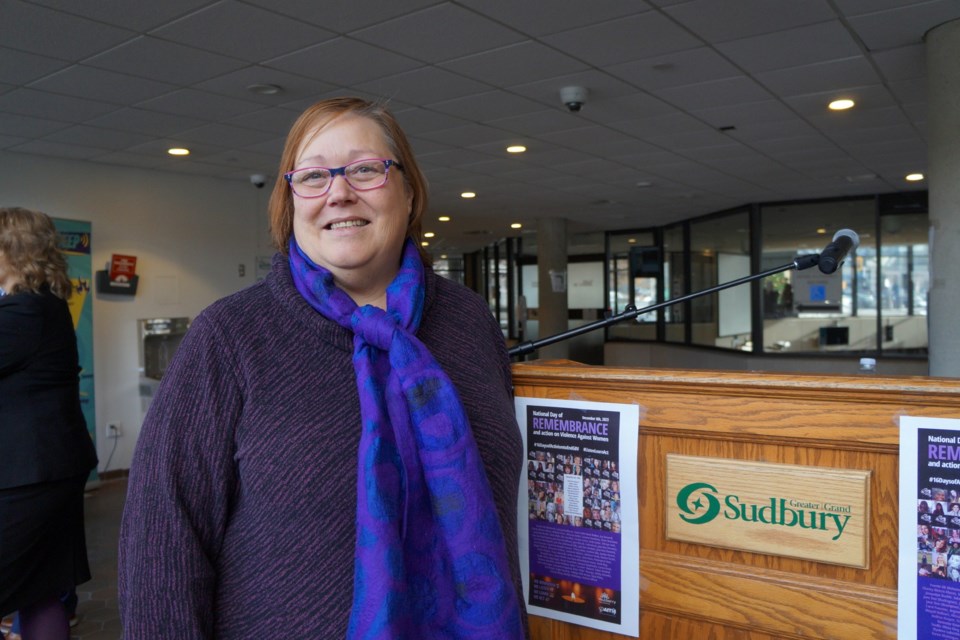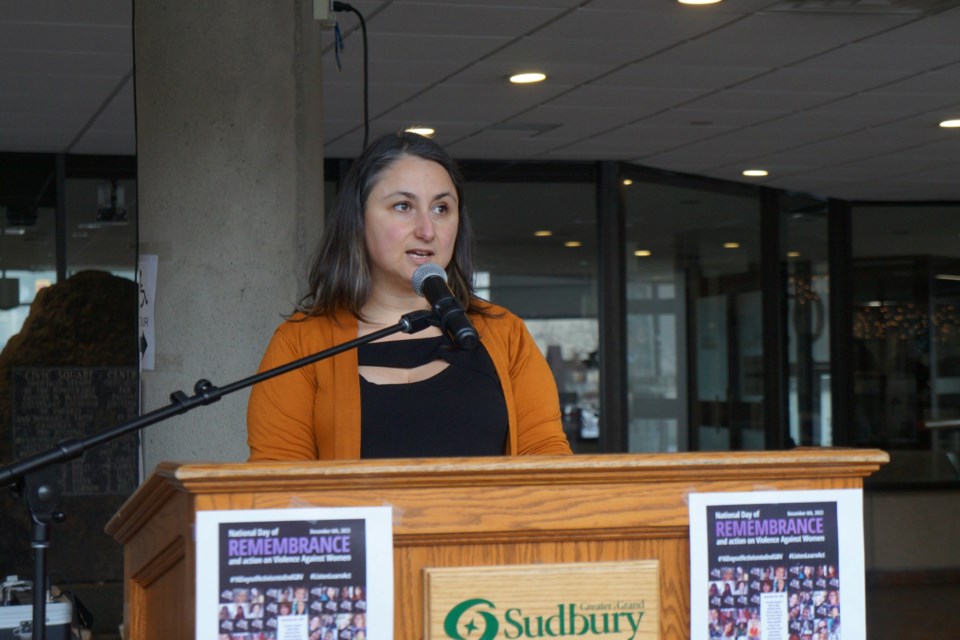For the last 34 years, Dec. 6 has been recognized as the National Day of Remembrance and Action on Violence Against Women.
And though it began as a way to acknowledge the gender-based massacre at Ecolé Polytechnique in 1989 that left 14 women dead, it now serves as a reminder gender-based violence continues to plague society.
This was a point raised at a vigil today, organized by the SWC and YWCA, at Tom Davies Square.
In fact, the City of Greater Sudbury recently proclaimed gender and intimate partner-based violence an epidemic, joining 63 other municipalities in Ontario.
In Sudbury, Carol Founier was found in a wooded area on Nov. 8, a victim of intimate-partner violence, police said.
On June 28, a recent graduate of the University of Waterloo stabbed three people in a gender studies class, which police described as a hate-motivated attack, and related to gender expression and gender identity.
On Oct. 23, a murder-suicide in Sault Ste. Marie that took the lives of three children — a 6-year-old, a 7-year-old and a 12-year-old — also took the life of a 41-year-old woman and the shooter.
Giulia Carpenter, executive director of SWC (formerly Sudbury Women’s Centre), spoke at the vigil and acknowledged the ongoing need to support those facing violence.
“Today as we commemorate the lives lost on this tragic day in 1989, we also acknowledge the countless survivors and pledge our unwavering support to those who continue to grapple with the repercussions of gender-based violence,” said Carpenter. “This event is not only a reflection of the past, it is a call to action for the future where equality and safety are non-negotiable.”

More than 30 people gathered to hear the speeches, which included Mayor Paul Lefevbre, who spoke of his daughter, who attends university in Montreal near Ecolé Polytechinque, and said every time he visits, he is reminded of the massacre.
“Sadly, violence against women is now a growing social issue, and gender-based violence and intimate partner violence are on the rise, particularly since the COVID 19 pandemic,” said Lefevbre. “And that's troubling as research consistently shows that these cases are underreported. This violence can happen between strangers or between people who know each other, regardless of background, socio-economic status or identity and some women, girls and gender-diverse people, face an even higher risk due to barriers or discrimination based on their race, disability status or housing status.”
Marlene Gorman, executive director of YWCA Sudbury and Genevra House, told attendees that in Ontario, there are more women, gender-diverse people and children in need of emergency shelter than there are beds to offer.
“Across Canada, approximately 699 women and 236 children are turned away nightly, because shelters are full,” she said.

Gorman told Sudbury.com that due to a lack of affordable housing, the shelter tends to be a “bottleneck”, as women are staying longer because they don't have safe, affordable housing to move into.
“Market rents are not affordable, and many women choose not to leave an abusive partner, because they can't afford to live on their own,” she said.
Their decision to leave can also be affected by a lack of income, or avoiding the need to displace their children.
“Sometimes it's cultural,” said Gorman. “Where it's not acceptable within their culture to leave their partner no matter what is happening within their families.”
For this year, there is call for action coming along with the National Day of Remembrance and Action on Violence Against Women, referred to with a hashtag: #16DaysofActivismtoEndGBV.
“During these 16 days, we recommit to urging the government to create a robust national action plan to end gender-based violence, while investing in affordable housing and transition programs, emergency shelters for women and their families,” said Gorman.
“I remain hopeful that we can end will and gender-based violence and hope to see the numbers decline over the next year and years to come. With municipalities across Ontario, including the City of Greater Sudbury, declaring intimate partner violence and epidemic, we can confidently say that Ontarians share our urgency and publicly acknowledging the devastating impacts of intimate partner violence and gender-based violence and the need to take urgent action to address this violence.”
Jenny Lamothe covers vulnerable and marginalized communities for Sudbury.com
